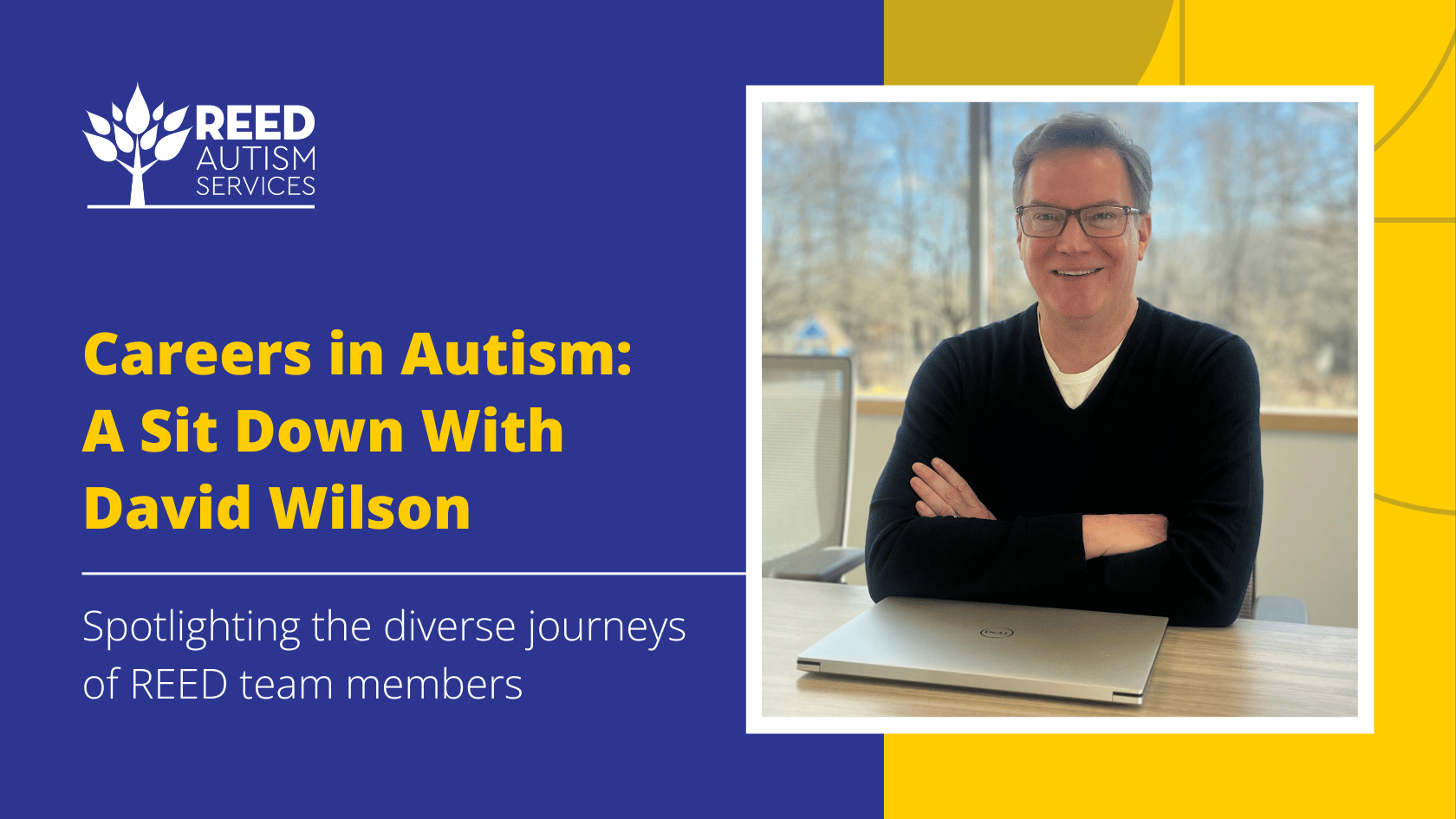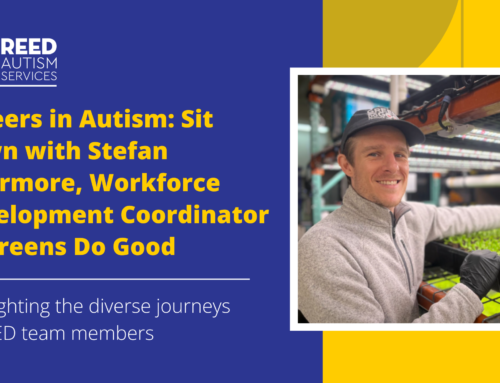Welcome to our new “Careers in Autism” series, where we spotlight the diverse journeys of REED team members. Each individual brings a unique story and passion to their role at REED, contributing to our shared goal of excellence in supporting the autism community. Read on to learn more about David Wilson, Ph.D., BCBA-D, Chief Clinical Officer at REED Autism Services.
What inspired you to pursue a career in autism?
I came to autism through the field of applied behavior analysis (ABA). After earning my undergraduate degree in psychology, I found myself working with developmental disabled individuals (mostly autism) at an organization that utilized ABA as the primary treatment modality. The inspiration to pursue a career in autism came from a clinical case involving an 18-year-old female diagnosed with autism. The girl engaged in severe self-injury and aggression and was institutionalized for most of her teen years. After a process of intensive assessment and treatment, I was able to walk her and her mother to her first day of school in over 5 years. Seeing her thrive, paired with her mother’s joy, solidified my focus to become a board certified behavior analyst (BCBA).
What would people be most surprised to learn about you?
That I never intended to go to college. I worked as an electrician for six years before deciding to go to college to study psychology. While I was completing my undergraduate degree I worked as a direct support professional in a group home serving six adults with developmental disabilities and severe challenging behavior. I started on the evening shift, then transitioned to the day shift where I began writing and implementing habilitation goals. That was the job where I first learned about ABA.
What are the most rewarding aspects of your job at REED?
Everyday I get to collaborate with a team who is dedicated to improving the lives of individuals with autism. It is inspiring to see the commitment REED staff members have to ensuring the success of each individual we serve. Of course there is no greater reward than bringing about positive change in the lives of the individuals and families we serve.
Could you describe a project or initiative you’ve been involved in at REED or outside of REED that made a significant impact on the autism community?
I believe the field of applied behavior analysis continues to have the most significant impact on the autism community. My work in ABA has spanned research, practice, and public policy. Within that work I have mentored and trained hundreds of individuals, many of whom went on to become Board Certified Behavior Analysts working to serve the autism community.
What advice would you give to someone aspiring to pursue a career in autism?
Pursue employment at an organization that not only provides great services, but also provides high quality training and mentorship. Find a mentor in your chosen career path, share your career goals, and meet with them as frequently as you can. Your early training and supervision shape and set your career trajectory.
What skills and qualities do you consider essential for success in a career in autism?
I consider patience, the ability to collaborate with others, and a commitment to evidence-based practices essential for a career in autism. There are no shortcuts in autism treatment and you can’t be successful by yourself.
Considering a career in autism? Learn more about the many opportunities at REED Autism Services.







